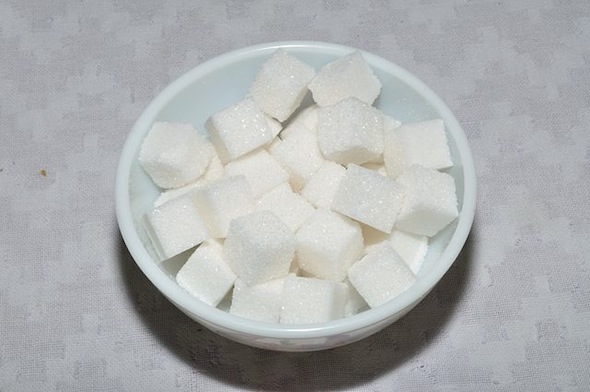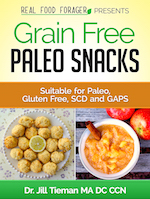Robert Lustig, a pediatric endocrinologist has become a major voice for revealing the dangers of excessive sugar consumption. Lustig, MD, in chorus with Laura Schmidt, PhD, MSW, MPH, and Claire Brindis, DPH, colleagues at the University of California, San Francisco (UCSF), have made some compelling statements, in a position paper that was recently published in the February 2nd issue of the journal Nature. They conclude that sugar (sucrose, fructose and high fructose corn syrup) is to blame for the increase in chronic disease worldwide and suggest that it should be regulated much like alcohol and cigarettes.
Chronic debilitating diseases are on the rise worldwide
According to a United Nations report, non-communicable diseases now pose a greater health burden worldwide than infectious diseases. In the United States, 75 percent of health care dollars are spent treating chronic non-communicable, diseases and the disabilities associated with them. More people are dying from “lifestyle” diseases with tobacco,alcohol and diet as the central risk factors.
Is over consumption of fructose to blame?
In a previous post about sugar and cancer, I talked about Lustig’s research with fructose as revealed in an interview with Gary Taubes that was presented in The New York Times Magazine article called “Is Sugar Toxic?”. Lustig presents his ideas in a Youtube video which at this point has had almost 2 million views.
Lustig explains that fructose is metabolized in the liver while the glucose portion of the table sugar molecule (sucrose) is metabolized by all the cells of the body. Fructose causes the liver to work harder and this is damaging and is the driving force behind metabolic syndrome.
If you take sugar/fructose as a liquid (as in fruit drinks and soda) it will reach the liver faster and it will have an even greater detrimental effect. Research has shown that in rats when fructose hits the liver with sufficient speed and quantity, the liver will convert much of it to fat. If this occurs continually, it will induce insulin resistance — a condition that is now considered the fundamental problem in obesity and which leads to heart disease and type II diabetes.
Sugar Feeds Cancer
Science suggests that this consumption of fructose leads to tumor growth. Many researchers believe that it is sugar in the modern diet that provokes cancer. Current studies have shown that having insulin resistance actually promotes tumor growth, because in this condition the body has to secrete more and more insulin and/or insulin-like growth factor (IGF-1) and these chronically elevated insulin levels support malignancy.
Additionally, research recently published in the journal Cancer Research, supports the work showing that fructose is a major player in driving the growth and proliferation of cancer cells. In this case they studied pancreatic cancer, a fierce and rapid cancer. They found that the tumor cells used fructose for cell division, provoking rapid growth and spread of the cancer.
Sugar may be just as dangerous as alcohol
In the Nature article, a handy chart was published that compared the effects of sugar with alcohol. It shows that 66% of the damaging effects of chronic exposure to ethanol are exactly the same as the effects of chronic fructose exposure.
Sugar Is Much Worse Than Just Empty Calories That Make You Fat
In an article, ‘Societal Control of Sugar Essential to Ease Public Health Burden,’ published by UCSF the researchers point out that sugar consumption is clearly detrimental in the following ways, beyond just being empty calories that makes people fat and diabetic.
- Fructose consumption changes metabolism.
- Fructose consumption raises blood pressure.
- Fructose consumption alters the signaling of hormones.
- Fructose consumption causes significant damage to the liver.
Damage to the liver is the newest effect of sugar on the human body and the least studied. That means, that it may turn out to be a major player.
The researchers argue,
Worldwide consumption of sugar has tripled during the past 50 years and is viewed as a key cause of the obesity epidemic. But obesity…may just be a marker for the damage caused by the toxic effects of too much sugar. This would help explain why 40 percent of people with metabolic syndrome — the key metabolic changes that lead to diabetes, heart disease and cancer — are not clinically obese.
Lustig also states, “There are good calories and bad calories, just as there are good fats and bad fats, good amino acids and bad amino acids, good carbohydrates and bad carbohydrates…but sugar is toxic beyond its calories.”
The Solution
The solution is challenging to say the least. The authors believe that the public must be better informed about the emerging scientific information on sugar and it’s effects.
Dr. Laura Schmidt, professor of health policy at UCSF’s IHPS and co-chair of UCSF’s Community Engagement and Health Policy Program said,
There is an enormous gap between what we know from science and what we practice in reality… in order to move the health needle, this issue needs to be recognized as a fundamental concern at the global level.
Her program focuses on bridging academic research, health policy, and community practice to improve public health. They are not advocating major intervention by the government. They suggest increasing people’s choices of foods that are not loaded with with sugar by making them cheaper and easier to get.
The methods used to reduce tobacco and alcohol consumption may become models for addressing the sugar problem. Sales, taxes, controlling access and tightening licensing requirements on vending machines and snack bars that sell high sugar products in schools and workplaces may also be suggested.
Challenges
When it comes to changing how “food” is grown, manufactured, distributed and consumed in this country, it may take a lot more than a few scientists and concerned researchers speaking out.
We have a congress that can’t even figure out how to make a school lunch healthier and who considers HFCS ketchup a vegetable. They are influenced by lobbyists for the food companies… I think change is a long time coming.
What do you think? Should we regulate sugar like tobacco and alcohol? Leave a comment and let me know!
For more information about the effects of sugar consumption on depression, head over to The Healthy Home Economist to read, Depression: Your Brain on Sugar.














